News
Exit from Pandemic was Discussed in Istanbul Chamber of Industry May Assembly Meeting
- 21.05.2020
- News
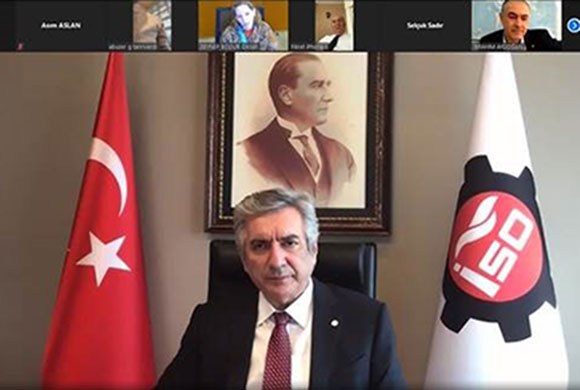
May Assembly of Istanbul Chamber of Industry was held as a video conference on the date of May 21st, 2020. The main agenda of ICI Assembly chaired by Zeynep Bodur Okyay, ICI Assembly President was “Exit Strategy from Pandemic and Industry in New Normal.” In the meeting for which the great majority of the Assembly members participated, members shared their opinions about the post-pandemic period.
Making a speech in Assembly meeting that Hasan Büyükdere, the Deputy Minister of Industry and Technology joined as well, Erdal Bahçıvan, ICI Board of Directors President drew attention that pandemic period created a bigger role for the governments compared to the past for answering to the inequalities and economic distrust. Bringing the supply chains to the country again, reducing the dependency on the foreign supply and supporting the finance by local production are being discussed by everyone.”
Bahçıvan said that: “Three priorities of the industry in the new normal which complete each other will be the digital transformation, high quality and qualified labor force.”
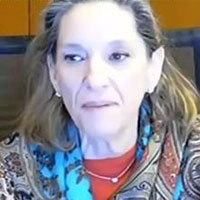
ICI Assembly President
Zeynep Bodur Okyay
The May Assembly meeting was opened by Zeynep Bodur Okyay, the ICI Assembly President. When opening the meeting, Okyay said that:
“I think we should fill two main frameworks. The first is how to avoid the huge economic burden resulted from the pandemic. The second is how to deploy in the new world order that is predicted to occur in the post-pandemic period, with a strong industrial production. There are some predictions based on the current data that the cost caused by the pandemic exceeded 8.5 trillion dollars in the world economy. There is not any state, sector or company that has not been impacted by the pandemic in the global arena.
T.R Minister of Treasury and Finance announced that the support provided so far has reached 5 percent of the national income and exceeded 240 billion TRY. It is predicted that a shrank for 3-5 percent will be experienced in the economy in this year. In the light of this information, the question for which we are seeking for an answer is that: How this invoice caused by the pandemic will be paid? The methods to close the budget deficit in the post-pandemic period should be clarified today. Carrying the load by the state seems like the most reasonable solution.
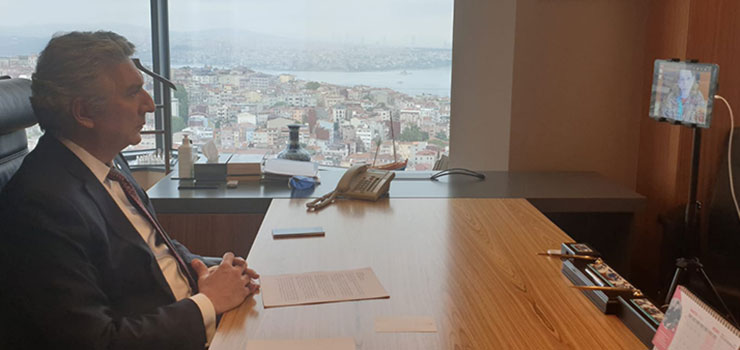
Any decision to expose the private sector to the load will deal major blow for the need of the industry in protecting the production, employment and financing power with the aim of strengthening the post-pandemic position of Türkiye. The second primary point is where the investments will flow that will change their location because of mainly the global realities but also upon the impact of reactions towards China. The reports reveal that India prepared itself rapidly and in the waiting position. Then, what should we do? We haven’t heard any satisfying answer for this question yet.
I am sure that as the industrialists, we all dream of a Türkiye which has more share in the global economy, we conduct the technological development that we are in need of, and we become an important part of the global value chains in post-pandemic period. To do so, we need a qualified and self-sufficient production economy; however, we do not have clear answers how we can achieve it.”
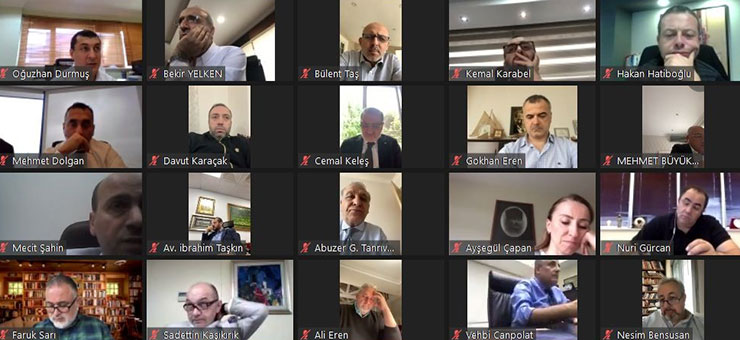
Okyay, the Deputy President of ICI Assembly gave the floor to Erdal Bahçıvan, ICI Board of Directors President to make his speech. Stating that in 2021, the global economy is expected to partially heal its wounds with a growth of around 4-5 percent, Bahçıvan said that according to the report published by the United Nations, accumulated cost of the pandemic on the global economy in this year and the next year will be around 8.5 trillion dollars. Bahçıvan pointed out that it means that the gains of the last four years will be erased.
On the other hand, emphasizing that everyone is on alert against the risk of “second wave”, Bahçıvan stated that unfortunately, the withdrawal process of the pandemic did not progress simultaneously and the center of the pandemic was shifting towards developing countries. Stating that such countries are predicted to need financing support for 2.5 trillion dollars in this year and next year to be able to fight agains the crisis caused by the pandemic, Bahçıvan expressed that the capital outflow experienced in developing economies during the pandemic period was far beyond the 2009 crisis. Bahçıvan told that many countries are seeking resources to avoid payment balance crisis and to finance the increased expenditures.
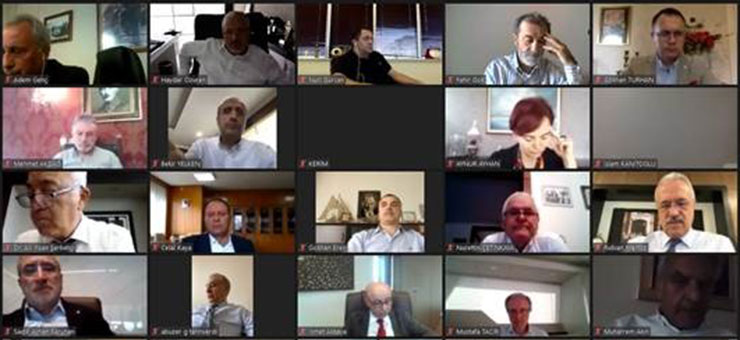
Reminding that there are important uncertainties regarding the global financial stability in the following period, Bahçıvan noted that the governments announced huge financial support packages to alleviate the impacts of the pandemic and bond issues reached enormous dimensions. Mentioning that central banks are taking limitless monetary expansion steps so that governments, companies and households can continue the cash flow, Bahçıvan drew attention that undoubtedly the precautions enabled to take early actions against more serious deteriorations and prevented the outcomes from being more destructive.
Underlying that these developments have been realized in an environment where the global debt stock exceeded 320 percent compared to the world product, Bahçıvan expressed that there are many uncertainties such as where inflation will go in the long run, whether there will be debt payment difficulties. In addition to such uncertainties, Bahçıvan said that the obligation of public to cut back their expenditures and reduce their investments apart from those caused by fighting against the pandemic is another question mark for the future.
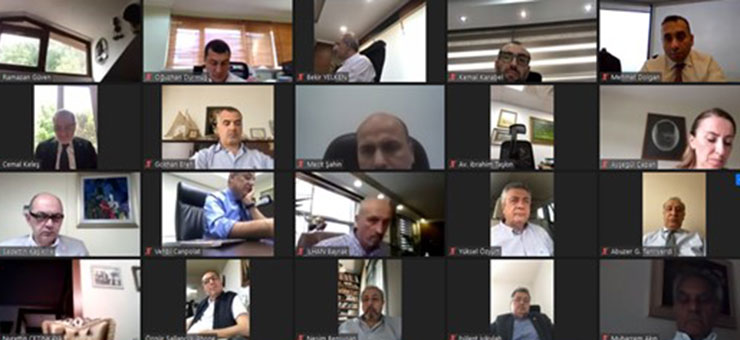
Drawing attention that the partial agreement between the USA and China in early-2020 and the trade and technology war taken to the background due to COVID-19 are warming signs, Bahçıvan stated that this seems to continue to be one of the factors which will determine the new normal after the pandemic and the future of the globalization in general terms.
Saying that they have to consider the new role of the state in this period, Bahçıvan stated that: “Neoliberal market conservatism, the consensus that the market will make everything beautiful has been withdrawing for a while. Designing a bigger role for the state in responding to the inequalities and economical insecurities is becoming priority for the economists and policy-makers in this period. On the other hand, getting away from the market conservationism might be replaced by a green-economy based comprehensive approach with good working locations and constructing the middle class. As the history reveals, the return of the state comes with the priority of nation states. Therefore, bringing the supply chains to the country again, reducing the dependency on the foreign supply and supporting the finance by local production are being discussed by everyone. Additionally, developing countries have to trust in new growth models now.
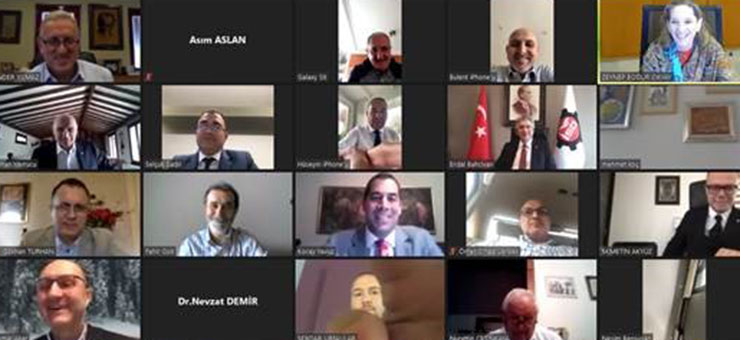
Bahçıvan continued:
“The world economy was in a fragile and unsustainable path in scale sense, and Covid-19 clarifies the challenges that we have faced with and the decisions we have to take. Policy-makers have choices for each of these fields. It is possible to obtain better or worse outcomes. Briefly, comments that the fate of the world economy is not shaped by what the virus does, but how we choose to respond are drawing attention. We have seen that the science should be the primary guideline in this period. Even if we are well aware that our problems are complicated and the solution is difficult, I strongly believe that we will get over them in the light of the science. Even if the pandemic becomes more managable with its biologic aspect, its economical impacts will maintain their existence for a long time. So, we should consider the exit strategies in terms of short, medium and long terms. "
Drawing attention to the exit strategies, Bahçıvan told that Turkish industry continue to produce despite of all the challenges and keep the country alive. Emphasizing that they see clearly that production is the insurance of export, daily life and employment, Bahçıvan said that: “Everybody is witnessing all together that the industry put forward its value for a country, a society once again in the world.
Noting that in the medium term, it is necessary to focus on the potential export share to be obtained from the change in supply chains, Bahçıvan drew attention that they should pay attention to the policies of the competitors and enable their own industries to be ready. Bahçıvan said that they need to use more bilateral collaborations, foreign capital investments, technology and R&D partnerships by paying attention to the renewal period of the supply chains especially in the European market.
Telling that it is necessary to draw the framework of the new normal and clarify the impacts on the industry in the long term, Bahçıvan emphasized that they should determine the global demand curve to be changed, the new consumption trends, Türkiye’s and the world’s needs and priorities of goods and services, and create suitable finance, technology and diplomacy supports accordingly.
Pointing out that the crisis they are going through requires the industry to acquire new competencies because of its depth and structural breakdowns, Bahçıvan expressed the importance of constructing production, sharing, education, employment policies by trying to foresee the direction of the change. Bahçıvan pointed out that digital transformation, high quality and qualified workforce employment will serve as the three complementary priority areas in the industry.
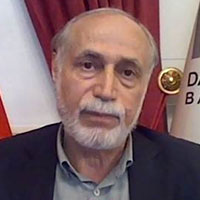
Hamza Cebeci, Head of Darulaceze
An iftar invitation was given by ICI at Darülaceze in this year in order to continue the tradition of iftar which is held annually but could not be realized in this year because of Covid-19 pandemic. Hamza Cebeci, the Head of Darulaceze also participated the Assembly meeting and provided information about Darülaceze. Cebeci stated that: We used to organize nearly 15 iftar events at the Darulaceze garden in each year. We had to cancel many planned iftar events this year. However, ICI preferred to organize the iftar event instead of canceling. As a country, we are performing an exemplary process to the world. We are being role models to the world. I would like to thank ICI for its sensitivity.”
Then the Assembly Members shared their opinions regarding the Assembly agenda. ICI Assembly Members provided infromation about their own sectors in the exit process from pandemic.May Assembly of Istanbul Chamber of Industry was held as a video conference on the date of May 21st, 2020. The main agenda of ICI Assembly chaired by Zeynep Bodur Okyay, ICI Assembly President was “Exit Strategy from Pandemic and Industry in New Normal.” In the meeting for which the great majority of the Assembly members participated, members shared their opinions about the post-pandemic period.